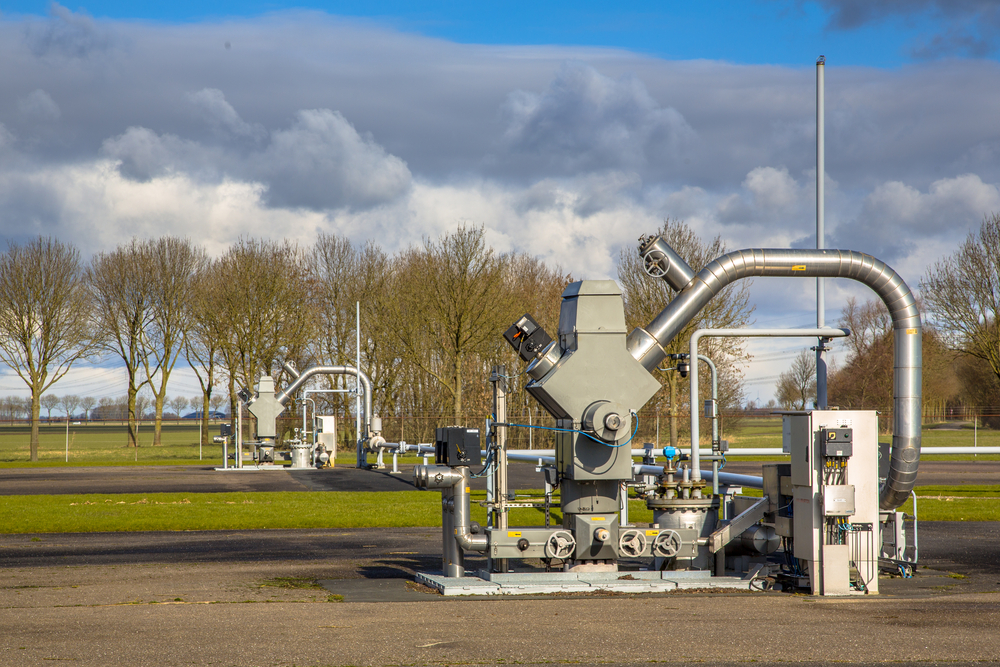No cheers as Groningen gas taps are switched off after 60 years

Gas production in the northern province of Groningen ground to a halt on Sunday after 60 years – but the news has been greeted with widespread scepticism.
The Dutch government agreed to end production at the end of the last “gas year”, which runs from October to October, but retained the option to restart in five locations if a cold snap hits this winter.
“We’ll believe it when we see it,” Groningen residents wrote below a post on local news network RTV Noord, while others dismissed the reports as “fairy-tales”.
Some locals predicted the government would restart production if it needed to top up the state coffers in a recession. “If the pot of money runs out in The Hague, they’ll turn the tap back on,” one commenter said.
Neither the cabinet in The Hague nor the local authorities in Groningen have organised any events to mark the moment natural gas production officially ended.
Groningers remain deeply suspicious of the government’s motives after it ignored the impact of earthquakes caused by gas extraction for years, then made the process of claiming compensation so cumbersome that many householders are still waiting for their homes to be repaired.
€360bn revenues
Since the Slochteren gas field was opened in 1963 the Dutch state has earned €360 billion from gas extraction, with another €66 billion split between energy giants Shell and ExxonMobil.
But the cost to the community was high: more than 1,600 earthquakes have hit the region since the 1980s, damaging 85,000 buildings. The turning point was a quake measuring 3.6 on the Richter scale in the village of Huizinge in 2012.
Since then production has been cut from 54 billion cubic metres per year to just 3.6 billion cubic metres last year.
On Sunday an earthquake measuring 1.9 on the Richter scale was recorded in the Drenthe village of Hooghalen, south of Assen. The location of the quake was 3km below ground level, indicating it was linked to gas extraction.
The caretaker government is drafting legislation that would allow the five remaining gas locations to be closed down and sealed up on October 1 next year.
‘Uncertainty’
Grassroots organisation Groninger Bodem Beweging (GBB) said it was disappointed that production had not been shut down permanently in 2023.
“They’ve decided not to extract any more gas from next year, but this cabinet won’t be there next year. That is still causing uncertainty,” the GBB said in a statement.
There are also concerns that the NAM, the joint venture by Shell and ExxonMobil that has a monopoly on exploiting gas reserves in the Netherlands, recently submitted a plan to restart production in Drenthe.
NAM said it had identified opportunities to extract gas without damaging neighbouring properties in Norg.
The village is home to a gas storage facility that sits on 15 billion cubic metres of so-called “cushion gas”, a reserve level kept below ground during storage to maintain the required pressure. NAM is proposing to close the storage facility, which would allow it to drain the reserves.
“This gas from Dutch soil will increase the robustness of the gas system and temporarily reduce our dependence on imported gas,” the NAM said in a statement.
The company said it could restart production in Norg within two years. But the plan has been criticised as inappropriate by caretaker mining minister Hans Vijlbrief.
“They’re within their rights, but I find it quite a move by the NAM to ask me for a licence to extract that cushion gas while we’re in talks about closing the Groningen gas field,” Vijlbrief said.
Thank you for donating to DutchNews.nl.
We could not provide the Dutch News service, and keep it free of charge, without the generous support of our readers. Your donations allow us to report on issues you tell us matter, and provide you with a summary of the most important Dutch news each day.
Make a donation